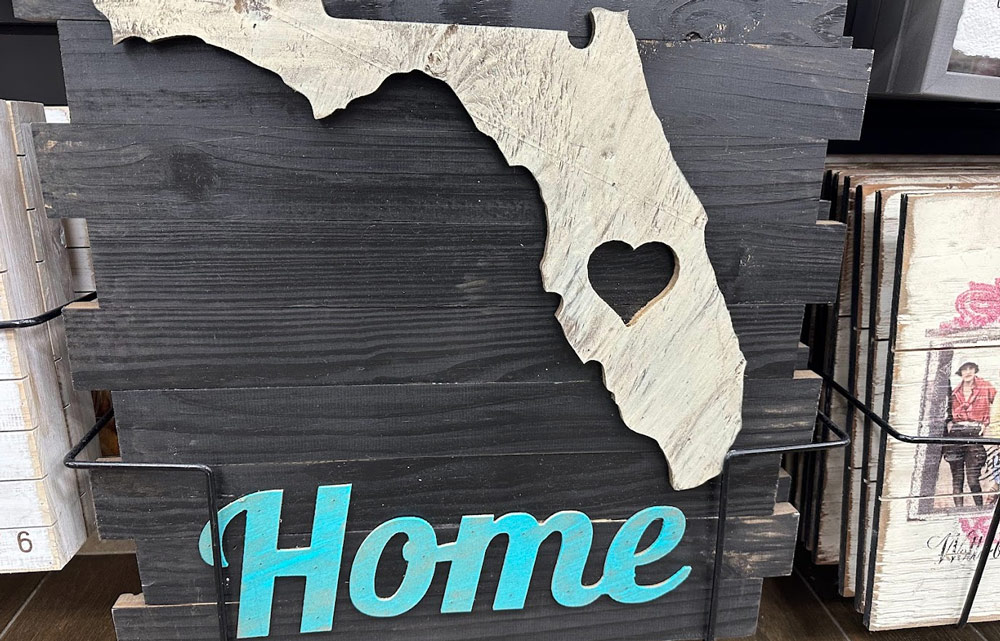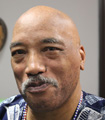
By Barrington Salmon
Last week, my best friend, who lives in South Florida, was explaining the hellscape that undocumented immigrants have been forced to endure since Gov. Ron DeSantis – in his slavish devotion to nastiness and cruelty – mimicked the federal government and called a special session in which the Republican-dominated Legislature passed a law that would further punish them.
DeSantis has savaged lawmakers for not doing enough to support President Donald Trump’s campaign promise to detain and deport as many as 20 million undocumented immigrants. He has worked assiduously to engineer Florida’s reactionary version of “how many ways can we screw over immigrants?”
In addition, DeSantis announced in February that the Florida Highway Patrol, the Florida Department of Law Enforcement, Florida Fish and Wildlife Conservation Commission, and the Florida State Guard had entered into agreements to help U.S. Immigration and Customs Enforcement round up migrants.
Immigration-rights activists and lawyers report that ICE agents have set up checkpoints, raided people’s homes, and showed up unannounced at construction sites, grocery stores, immigration hearings, and a range of public places where immigrants — with and without papers — hang out.
An assortment of once-safe spaces where men, women, and children congregate are now danger zones. So far, agents haven’t been allowed to invade hospitals or churches.
At any moment, ICE and/or cops deputized by ICE can stop someone under a dubious pretext and demand proof that they are in the state and country legally.
While state and city officials claim that enforcement actions are focused on undocumented immigrants, these actions will have ripple effects across millions more people living in immigrant families, including U.S.-born citizen children, the Kaiser Family Foundation says.
According to its data, as of 2023 47.1 million immigrants lived in the United States, including 22.4 million non-citizens, of whom the Pew Research Center estimates 11 million are undocumented.
 There are other immigrants whose lawful status is at risk if they lose temporary protection status (TPS), which many of them are under Trump. That includes almost 1.2 million immigrants who either have or are eligible for TPS, the more than 530,000 active DACA recipients, and people in the country with pending asylum cases.
There are other immigrants whose lawful status is at risk if they lose temporary protection status (TPS), which many of them are under Trump. That includes almost 1.2 million immigrants who either have or are eligible for TPS, the more than 530,000 active DACA recipients, and people in the country with pending asylum cases.
Millions of others living in immigrant families also are likely to be affected, KFF said.
“Many undocumented immigrants live in families with mixed immigration statuses that may include people with lawful status and U.S. citizens,” researchers said. “As of 2023, 19 million, or one-in-four children in the U.S., had an immigrant parent, including one in ten (12%) who are citizen children with a non-citizen parent.”
Meanwhile, about 4.4 million U.S.-born children live with an undocumented immigrant parent.
‘People are afraid’
I talked to Thomas Kennedy of the Florida Immigration Coalition, a grassroots movement that includes community organizations, farmworkers, youth, advocates, lawyers, and union members.
“We’re seeing or have heard of checkpoints in Gadsden County,” he said. “In South Florida, we’re seeing heavily armed agents carrying semi-automatic weapons, involved in specific pickup/raid operations, mainly at people’s homes.”
Kennedy — who said both he and his parents have been undocumented at some point — reported that immigrant communities are awash with fear.
“People are afraid, worried, preoccupied. But they still have to do the day-to-day. Most people are resilient, trying to navigate the maze,” said Kennedy. “Cops are acting as immigration, asking for papers. Theoretically, they need to have some sort of reason to make a stop. Traffic violations are easy. People can be stopped for loitering or suspicion of some type.
“It wasn’t great before but it’s getting worse.”
Kennedy recounted the case of a University of Florida student here on student visa studying Food Resource Economics who was picked up by ICE because of expired tags.
“Now he’s at Krome,” Kennedy said when we spoke in a week ago. Felipe Zapata-Velásquez has subsequently been deported to Colombia.
None of what we are seeing in the immigration crackdown sphere is new, Kennedy reminds us.
He said a group of activists have met and protested at the ICE/Miramar Processing Center since 2017, where unmarked vehicles leave and come back on Wednesdays full of undocumented men, women, and children.
Advocates are fighting back with lawsuits, protests in Tallahassee and points across Florida, as well as engaging in other forms of civil disobedience and opposition to these tactics, but DeSantis and Attorney General James Uthmeier have threatened lawsuits against those who resist while also threatening to withhold state funds from offending municipalities.
Fort Myers is a case-in-point.
The City Council there voted against but then voted in favor of an ICE agreement (it had failed on a tie vote) — the about-face coming three days after Uthmeier sent a letter warning that DeSantis could remove councilmembers from office unless they approved the agreement, whereby the federal government deputizes Ft. Myers police officers to act as immigration enforcement.
 “We were never told this vote could expose us to becoming labeled as a sanctuary city despite the city’s continued lawful cooperation with ICE. That omission is critical to the lack of efficacy that we were displayed,” council member Darla Bonk said during a recent meeting.
“We were never told this vote could expose us to becoming labeled as a sanctuary city despite the city’s continued lawful cooperation with ICE. That omission is critical to the lack of efficacy that we were displayed,” council member Darla Bonk said during a recent meeting.
Under the 287(g) federal-state task force model, city police officers receive training allowing them to question people about their immigration status and detain them if they are subject to deportation.
‘Cruelty’
Floridians for Immigrant Justice and the American Civil Liberties Union assert that “Florida’s anti-immigrant laws that weaponize programs against lawfully present immigrants and their families, separate families, harm DREAMERS, require local resources to be spent on enforcing immigration law, must be ended.
“Cruelty is not an immigration policy. Policies that make Florida a ‘show your papers’ state are un-democratic and do not align with our values.”
Representatives from both organizations note that one out of every five people in Florida was born outside the United States, making the state one of the most diverse in our country.
“It is critical that every single person in our state is able to live, work and travel without fear of violence, harassment and discrimination. As a state with a vibrant and unique immigrant community, we must ensure the movement for immigrant justice is a reality in Florida,” they say.
Further, the activists argue, “local governments should decide how local resources are spent and local law enforcement should spend their time serving local communities — not enforcing federal immigration law.
Policies like SB 168 — approved in 2019 to outlaw “sanctuary cities” in Florida and requiring local law enforcement to cooperate with ICE — and new laws passed this spring requiring cops to perform street-level immigration enforcement — contribute to a climate of fear and demonization of immigrants.
These laws will tear families apart; further weaken trust in law enforcement by encouraging racial and ethnic profiling; endanger communities by discouraging victims and witnesses from reporting crime; and waste taxpayer money by forcing local police to do ICE’s job at taxpayer expense.
A larger question Floridians should be asking is: Who are we as a state? What are our values? What do we stand for? And what do we want as Floridians and Americans?
DeSantis and his culture war crusaders are on the front foot and have capitalized on their recent success with a firehose of legislation, policies, lies, and bullying. But those opposed to his cruel, reckless assault on immigrants have to fight back.
“Now they are empowered,” Kennedy said of DeSantis’ ramped-up anti-immigrant campaign. “It’s extremely concerning with law enforcement’s involvement. It’s costly, a liability, and affects public safety. Most cops don’t want to be ICE, but some will abuse it.”
![]()
 Journalist Barrington Salmon lived and wrote in Florida (Miami and Tallahassee) for almost 20 years. He is a 2017 Annenberg National Fellow (University of Southern California) who currently freelances for publications, including the National Newspaper Publishers Association/Black Press USA, Trice Edney Newswire and The Washington Informer. Salmon lives in the nation’s capital and can be heard on his video blog “Speak Freely with Barrington Salmon and NNPA’s “Let It Be Known.”
Journalist Barrington Salmon lived and wrote in Florida (Miami and Tallahassee) for almost 20 years. He is a 2017 Annenberg National Fellow (University of Southern California) who currently freelances for publications, including the National Newspaper Publishers Association/Black Press USA, Trice Edney Newswire and The Washington Informer. Salmon lives in the nation’s capital and can be heard on his video blog “Speak Freely with Barrington Salmon and NNPA’s “Let It Be Known.”







